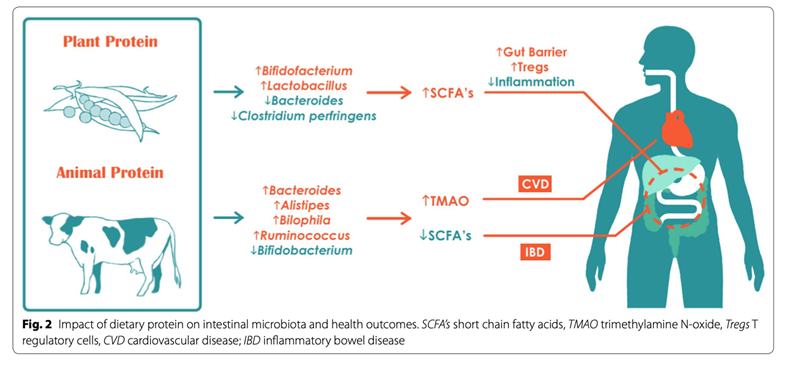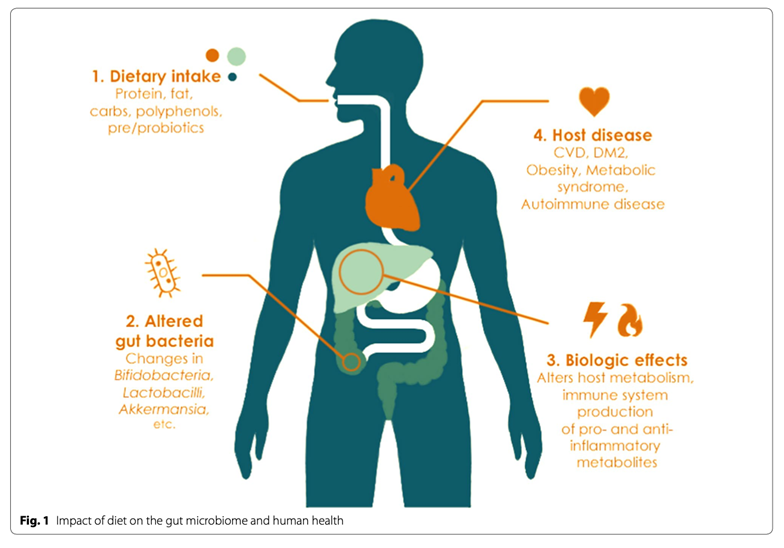Heal an Unhealthy Gut: Foods for your Gut Microbiome
Posted at : 10-03-2022 | 5 mins read
While probiotic-rich foods are beneficial for gut health, let’s take a closer look at some of the best and worst foods for gut microbiome.
Your gut microbiome refers to the trillions of microorganisms that inhabit your digestive tract. A human body has about 300 to 500 different species of bacteria in their intestines. These little bugs aid in food digestion, nutrient absorption and also help prevent infection and inflammation. When your gut health is out of balance, you tend to experience symptoms like an upset stomach, frequent weight change, sleep disturbances, skin irritation, food intolerance, or even fatigue. Gut bacteria is also closely linked to your mental health, blood sugar, and liver health.
10 signs you have a Gut Imbalance
- Chronic diarrhea, constipation, gas or bloating.
- Frequent illnesses or poor immunity
- Headaches, brain fog, memory loss
- Excessive fatigue
- Skin rashes and problems like acne, eczema or rosacea
- Frequent cravings for sugar or carbs
- Arthritis or joint pain
- Nutritional deficiencies
- Hormonal imbalances that lead to endometriosis or PCOS.
- Mental health issues like depression, anxiety, attention deficit disorder (ADD)
Gut to Know: How does the gut go out of balance?
If you could relate to even one of the aforementioned conditions, you’d be wondering how did I even get here? There are five main reasons for a leaky or imbalanced gut:
- Poor diet: Sugar, processed or genetically-modified foods (GMO), and dairy products are some of the worst foods for gut health.
- Stress: Prolonged exposure to stress weakens your body’s immune response making it more susceptible to illnesses and infections.
- Toxin overload: Our bodies are constantly exposed to chemicals and other toxic substances on a regular basis like pesticides, aspirin and contaminated tap water.
- Antibiotics: Each time you take a course of antibiotics, it takes several months (yes, up to six!) to restore gut health.
- Birth Control: Oral contraceptives can also alter your gut microbiome diversity.
- Others: Artificial foods and additives like low-calorie sweeteners, food colours, food flavours and red meat also alter the gut diversity.
Best Foods for a Healthy Gut
Studies have proven that plant-based diets and an increased intake of dietary fiber are some of the best foods for gut microbiome.

Source: Journal of Translational Medicine
1. Plant Protein:
A research paper that studied the effects of dietary protein on gut microbiota reports that protein consumption positively correlates with overall microbial diversity. For instance – the consumption of whey and pea protein extract increases the count of Bifidobacterium and Lactobacillus. Pea protein also boosts intestinal SCFA levels, which are important for maintaining the body’s natural anti-inflammatory response and mucosal barrier. While animal-based diets are protein-rich, they also contain high levels of fat which in turn affects the microbial composition.
2. Non-digestible Carbohydrates:
Carbs are of two types- digestible and non-digestible. Digestible carbohydrates include starches and sugars like glucose, fructose, sucrose, and lactose. Non‐digestible carbohydrates include fiber and resistant starch.
The non-digestible carbohydrates are not degraded in the small intestine. These travel to the large intestine where they undergo fermentation by resident microorganisms and modify the intestinal environment in the process.
Dietary fiber continues to emerge as healthy gut bacteria food, as it carries a good source of microbiota accessible carbohydrates. Working as fodder for the microbes, these help provide the body with energy and stimulate the growth of good bacteria.
Increased intake of dietary fiber > increases fiber-degrading microbes > leads to better digestive power and energy levels > lower risk of metabolic and chronic diseases
(can refer to the figure below for details)

3. Probiotics:
Fermented foods like cultured milk products and yogurt that contain lactic acid bacteria help regulate intestinal health. Prebiotic foods (whole grains, bananas, greens, onions, garlic, soybeans, and artichokes) are also good foods for the gut microbiome. Prebiotics increase the production of SCFAs and strengthen the gastrointestinal-associated lymphoid tissue (GALT) through fiber fermentation. In the long run, consuming probiotic rich foods for gut health prevents inflammatory bowel disease and bolsters the body’s immune response.
4. Polyphenols:
Blueberries, grape skin, almonds, red wine, cocoa and dark chocolate, seeds, green tea, onions and broccoli are some of the healthy gut bacteria foods. Abundant in polyphenol content, these foods are rich in bacterial genera (Bifidobacterium and Lactobacillus) and therefore accrue benefits like immune-modulation, cancer prevention, and inflammatory bowel disease management.
Great! So I’ll just stick to my high protein-low carbohydrate diet? Umm, maybe not.
Although high protein-low carbohydrate intake promotes relative weight loss, even this dietary pattern could be detrimental to health in the long run. One study found that subjects with a high protein-low carbohydrate diet have reduced counts of certain bacteria (Roseburia and Eubacterium rectale) in their microbiome. Consuming a low-fat diet leads to increased fecal abundance of a certain bacteria (Bifidobacterium) even though it does reduce levels of blood glucose and total cholesterol when compared to baseline.
Instead, one must incorporate diets that are naturally diverse to help modify the intestinal microbiome for improved health. For example – the Mediterranean diet is highly regarded as a healthy balanced diet. A traditional Mediterranean diet is marked by foods that contain high levels of polyphenols, antioxidants, fiber and low glycemic carbohydrates, and relatively greater vegetable than animal protein intake. Olive oil, assorted fruits, vegetables, cereals, legumes, and nuts; moderate consumption of fish, poultry, and red wine are foods good for gut microbiome. It is also advisable to lower the intake of dairy products, red meat, processed meat, and sweets. In several studies, a Western diet (high in animal protein and fat, low in fiber) shows a decrease in numbers of total bacteria. Strict adherence to a Western diet has also been associated with the production of cancer-promoting nitrosamines.
While eliminating gluten, dairy, soy, refined sugar, caffeine, or alcohol may boost your energy levels and keep diarrhea and bloating at bay in the short run, a plant-based diet rich in fiber is ideal food for gut health.
Parting Words:
Since the gut microbiome has a direct impact on your health, having a balanced gut flora is critical for a healthy immune system. The key to healing a leaky gut is changing your diet to accommodate more fiber and fermented foods. Sugar, genetically-modified foods (GMO), and antibiotics are some of the worst foods for gut health. While dairy products don’t necessarily top the charts when it comes to gut food, incorporating yogurt in your diet in some cases works well for gut health. High saturated and trans fat diets increase the risk of cardiovascular disease and should be moderated. However, health-promoting fats are good for the intestinal microbiome. While the aforementioned may work well as general guidelines for most people, every human body is unique. To understand the inner workings of your body and gut health, register for an integrated DNA+Gut Microbiome test.
Leave the guesswork out, and gain scientific insights into your body’s unique macronutrient and micronutrient needs. Our global team with over a decade of experience is at the forefront of personalized wellness so you can lead healthier lives. To order your Navipoint Health home testing kit, visit www.navipointhealth.com
Health KidsNavipoint
Health AdultsNavipoint
Health LongevityGut Balance Program

Chicago, USA and Hyderabad, India
Headquarters in Chicago, IL USA
© 2025-2026 All Rights Reserved.
Terms & ConditionsPrivacy Policy







